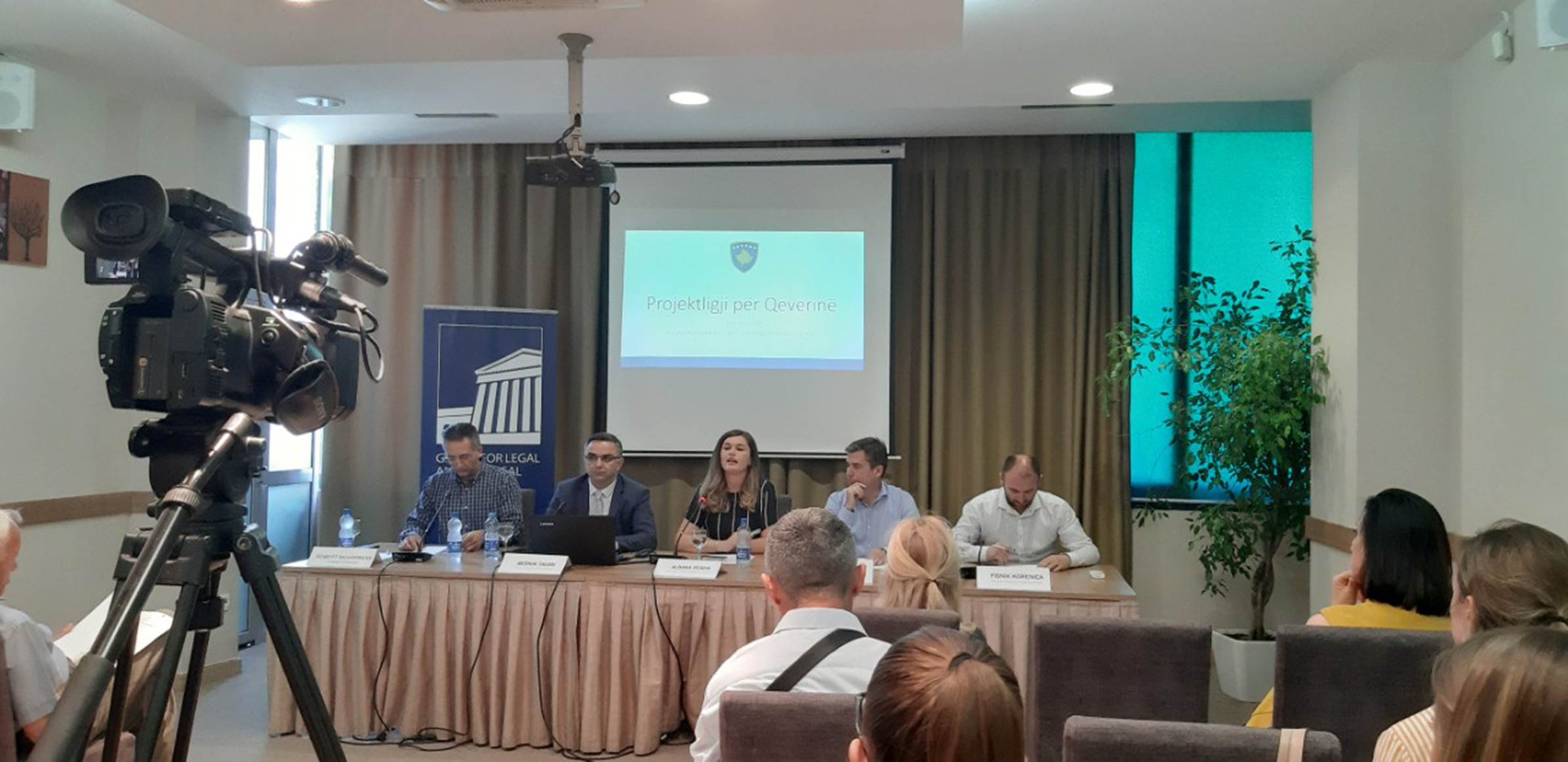On July 03, Group for Legal and Political Studies (GLPS) organized a Panel Discussion on the topic: “The Law on Government and challenges ahead”, held in Prishtina. The aim of this event was to discuss the current draft-law on Government, and challenges related to the decrease of the number of ministries, as part of the new restructuring process of the government. During the discussion, panelists had the chance to discuss the fundamental purpose of this reform, focusing on the decrease of the number of current ministries and challenges that might hamper this process during the implementation.
Ms. Rexha, a Senior Research Fellow at GLPS said that the Kosovo government remains the largest one in the Western Balkans, either in terms of deputy prime minister, or deputy minister, among others. “This structure is highly inefficient and lacks proper inter-institutional coordination”, she concluded.
In addition, Mr. Tahiri, the National Coordinator for State Reforms said that the Law on Government will be the cornerstone of the public administration in Kosovo, which so far has addressed the salaries, state administration, executive agencies and civil service. Ensuring that the law sets a maximum number of ministries is the most important aspect, which enables a full implementation of the public administration reform in Kosovo. “The current draft-law will regulate the aspects pertaining to the number of ministries, advisors, decision-making process during electoral processes, conflict of interest and transparency”, he added.
On the other hand, Mr. Morina, a Law professor at University of Prishtina, agreed that decreasing the number of ministries to a half of what the current structure is, the government would be considerably more efficient. He then added that a Law on Government would highly contribute towards framing the fundamental principles of good governance, increasing efficiency, well-functioning of the executive, and would facilitate dhe decision-making process, among others.
In addition, Mr. Muharremi, a professor at the University of Prishtina, said that the discussion on the Law on Government should focus on two main constitutional aspects, including the principles of power sharing, and the competences of the Assembly of the Republic of Kosovo to limit the number of government ministries and their staff. Based on what the Kosovo Constitution stipulates, as well as on the Constitutional Court interpretations, it is impossible to acknowledge the role of the Kosovo Assembly in setting the maximum number of ministries and government members.
Finally, Mr. Korenica, a Co-founder and Senior Research Fellow at GLPS, said that the as long as there is no other mechanism in place that regulates the government structure, a Law on Government is essential. Such a law would, for certain, set criteria for the number of ministries, public servants and the overall functioning of the government, and will in turn, avoid possibilities for abuse and clientelism.
Panelists:
Mr. Besnik Tahiri – National Coordinator for State Reforms;
Mr. Visar Morina – University Professor;
Mr. Robert Muharremi – University Professor;
Mr. Fisnik Korenica – Co-founder and Senior Research Fellow, GLPS;
Ms. Albana Rexha – Senior Research Fellow, GLPS.
Venue: Orion Conference Centre (str. Rexhep Luci, 10000 Prishtina, Kosovo)
Share article
Latest Publications
April 24, 2024
Policy Analysis
Tracking Kosovo's Commitment: Monitoring Adherence to the Venice Commission Rule of Law Checklist in ...
April 8, 2024
Policy Analysis
Reflecting on the Third Year of Kurti II: Setbacks and Achievements in Rule of Law, Public Administr ...
March 22, 2024
Policy Analysis
Lost, “in the Twilight Zone” Rebutting the Court’s Blunder
Related Espresso Insights
March 4, 2024
Espresso.Insights
Passport Hangover: What’s next after Spain’s Kosovo breakthrough?

January 16, 2023
Espresso.Insights
Recognized but not supported: Hungary's stance on Kosovo's EU bid





